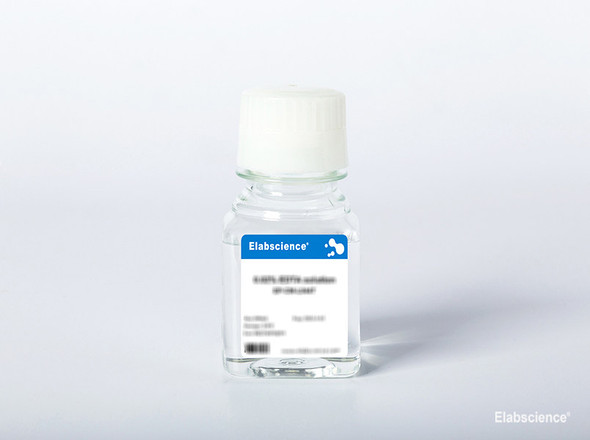Description
Background
Trypsin is a serine hydrolase that can cut the base-side segment of the lysine and arginine residue in the polypeptide chain, hydrolyze the protein between the cells, and destroy the connection between the cells, so that the tissue or the adherent cells are dispersed into a single cell. The activity of the trypsin is related to the characteristics of the tissue or the cells, the concentration of the trypsin, the temperature and the time of action. At pH 8.0 and 37°C, the effect of the trypsin is the best. Therefore, the concentration of trypsin, the temperature and the time of the pancreatic enzyme should be grasped to avoid the excessive damage of the cells. In general, the frequently-used working concentration of the trypsin is 0. 25%, while the concentration of trypsin for the semi-adherent cells or the cells is 0.05%. Since EDTA is able to bind Ca2+ and Mg2+ to destroy the cell connection to promote the dissociation of the cells, a certain amount of EDTA is often added to the trypsin solution to enhance the dissociation effect.
Additional Information
Product Form: |
Liquid |
Concentration: |
100mM |
Phenol red: |
negative |
Dissolvent: |
10mM PBS |
EDTA: |
0.2g/L |
Trypsin: |
2.5g/L |
Storage: |
-20°C, shading light |
Shipping: |
Ice bag |
Expiration date: |
12 months |













